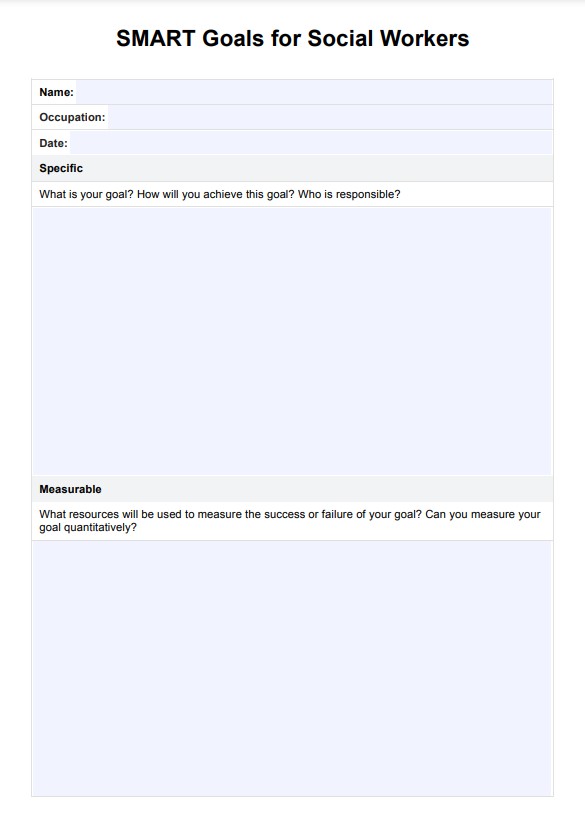Anyone can set SMART goals. Mental health professionals, such as social workers, can also use them. They can also be used during patient sessions.

SMART Goals for Social Workers Template
Click here to learn more about SMART Goals and how to implement them in your social work practice.
Use Template
SMART Goals for Social Workers Template Template
Commonly asked questions
This SMART goal template can be used when an individual has a goal they want to achieve. Identifying specific aspects of the goal can make the process of change and motivation easier.
Individuals can identify a goal they wish to pursue and fill out the required elements to complete the template. Depending on the timeline of the objective, the SMART goal template can be used for the entirety of the goal time.
EHR and practice management software
Get started for free
*No credit card required
Free
$0/usd
Unlimited clients
Telehealth
1GB of storage
Client portal text
Automated billing and online payments











